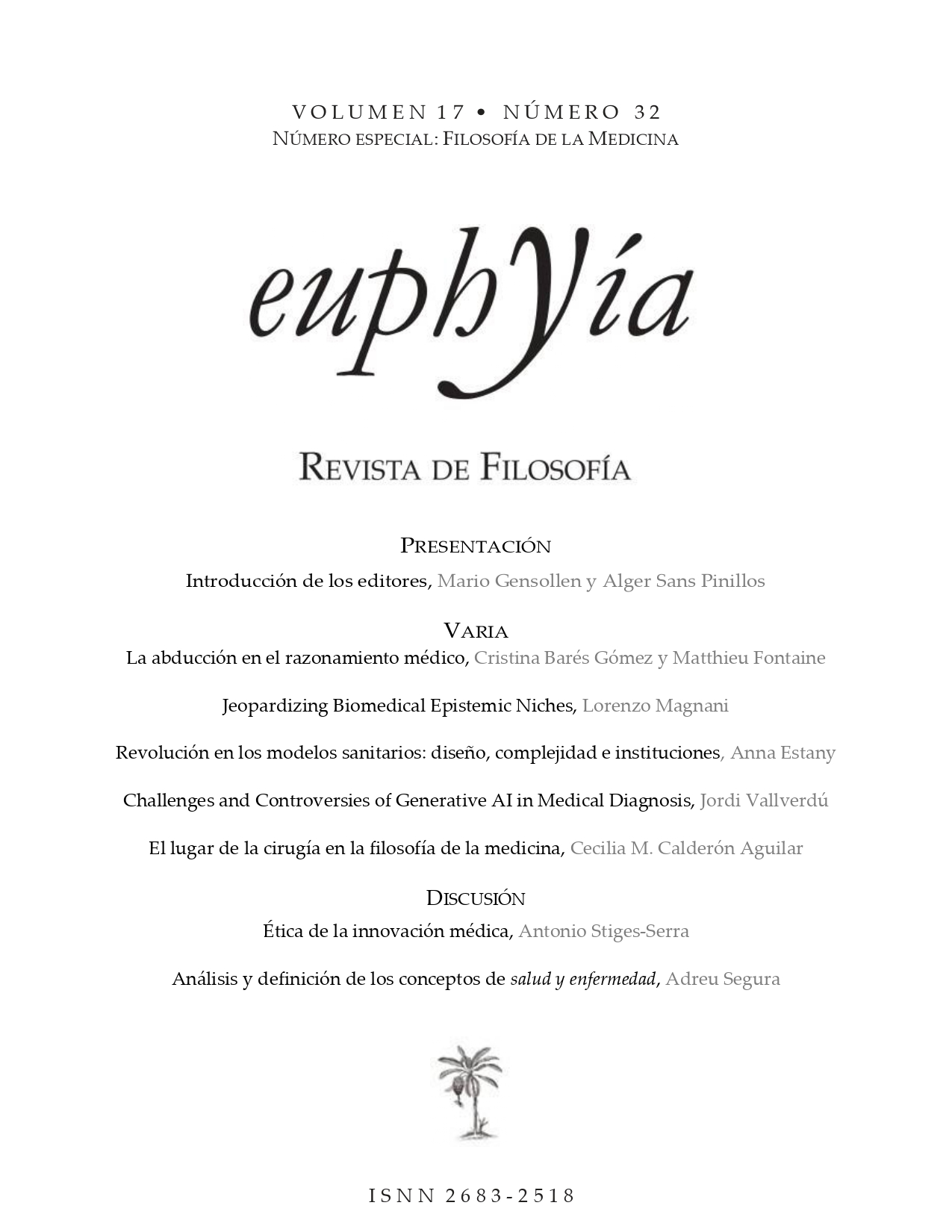Challenges and Controversies of Generative AI in Medical Diagnosis
DOI:
https://doi.org/10.33064/32euph4957Abstract
This paper provides a comprehensive exploration of the transformative role of generative AI models, specifically Generative Adversarial Networks (GANs) and Variational Autoencoders (VAEs), in the realm of medical diagnosis. Drawing from the philosophy of medicine and epidemiology, the paper examines the technical, ethical, and philosophical dimensions of integrating generative models into healthcare. A case study featuring Emily underscores the pivotal support generative AI can offer in complex medical diagnoses. The discussion extends to the application of GANs and VAEs in medical imaging, emphasizing their potential in improving diagnostics, treatment planning, and medical research. The paper further delves into challenges and controversies, addressing issues of anatomical accuracy, biases in training data, interpretability of AI-generated medical images, and ethical considerations, for example, the phenomenon of "Dr. Google" and its implications for self-diagnosis, particularly in the context of the increasing role of generative AI models in healthcare. The concluding section emphasizes the need for health literacy, responsible use of online information, and collaborative decision-making between patients and healthcare providers. We advocate for interdisciplinary collaborations to establish ethical guidelines and ensure responsible AI use in healthcare.
Downloads
Downloads
Published
How to Cite
Issue
Section
License

This work is licensed under a Creative Commons Attribution-NonCommercial-NoDerivatives 4.0 International License.

Este obra está bajo una licencia de Creative Commons Reconocimiento-NoComercial-SinObraDerivada 4.0 Internacional.












